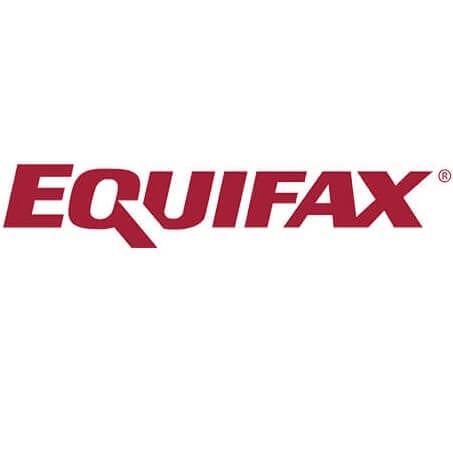Young adults are eager to master their personal finances. And it’s never been easier to find all sorts of personal finance advice on social media, whether it’s on TikTok, Instagram, X/Twitter or YouTube. You can easily scroll through endless hours of posts and videos about money from influencers—or rather #finfluencers.
But it’s not always wise to follow the personal finance advice you find online. Viral #MoneyTok videos may point to ways you can earn fast money, but that doesn’t mean you should trust them. Some can be schemes to get you to pay to learn about products they sell, and others are sharing their money story—mistakes and all. So, how can you filter the good advice from the bad?
Be aware of bad financial advice
Many Canadians fall victim to scams that offer a fast and easy way to make money, including many involving cryptocurrencies. In 2024, Canadians reported losses of more than $310 million to investment fraud, according to the Canadian Anti-Fraud Centre, much of it involving deceptive ads. Many victims believed they were guaranteed to earn quick cash, but they lost a ton of money instead.
That’s why it’s important to check if social media influencers (including celebs) are promoting risky and volatile investments. In 2022, for example, the Securities and Exchange Commission (SEC) in the U.S. fined Kim Kardashian USD$1.26 million for unlawfully promoting and hyping up cryptocurrency to her social media followers without disclosing her paid partnership with EthereumMax. Other high-profile people criticized for their online involvement with crypto include Paris Hilton, Snoop Dogg, Reese Witherspoon and Matt Damon.
Of course, the issue isn’t limited to crypto. Bad financial advice and outright scams come in many forms, from get-rich-quick schemes to questionable real estate strategies and “fool-proof” investment opportunities claiming to be risk-free. Always assess the risk involved in any investment. And remember, if it sounds too good to be true, it probably is.
Equifax Complete Protection
Equifax Complete Protection is a credit and cybersecurity protection service designed to help Canadians spot the signs of identity fraud faster.
- Provides daily credit monitoring and alerts
- Scans for your personal data on the dark web
- Social media monitoring by industry leader ZeroFox
Subscription price: $34.95 per month
How to know if an influencer is trustworthy
Here are five questions to ask yourself to help verify (call it your own “blue checkmark”) if a social media influencer is a good source of personal finance information.
- What is their financial credibility? Finfluencers don’t necessarily need credentials (although having an industry designation is always a plus!). But you should consider their education, real-life personal finance experience, media coverage from reputable outlets, and the quality of the content they publish. This can help you identify their level of authority and their expertise on the subject matter.
- Are they giving investment advice? Check if they often recommend buying specific investments, such as a specific stock they say can’t fail or pushing viewers to #buythedip (a hashtag used for plummeting stocks). Unless they are a professional financial advisor, they shouldn’t be giving investment advice. And remember that a real financial advisor will always tell you the risks involved with any investment opportunity.
- Are they transparent about how they make money? Established influencers will find ways to earn money from their work—and that’s perfectly fine. But good ones are upfront about how they profit from their content, for example through affiliate partnerships, paid promotions or sponsorships. You should be able to easily identify whether the influencer is profiting from any piece of content you are relying on for information.
- Are they balanced in their views? Do they seem biased in their opinions or perspectives? When they review financial services or products, are they balanced in their evaluations and comparisons? If the influencer heavily promotes one particular company or one particular approach to personal finance, consider whether they have any incentive to do so.
- Are they Canadian? Personal finance varies from country to country. What can work in the U.S. or Europe may not fly here in Canada. So, if you do learn about a money hack or financial strategy, don’t just take their word for it. Do your research and/or ask a qualified advisor first before you do anything with your money you don’t want to lose.
Tools
Find a qualified financial advisor near you
Search our directory of credentialled advisors providing financial and investing services across Canada.
5 personal finance influencers to follow
To make things easier for you, I’ve scoured social media and found five Canadian influencers I believe are noteworthy and provide quality personal finance content. Here they are, in no particular order:
Janine Rogan

Platforms: Instagram, X/Twitter, YouTube, LinkedIn
Hometown: Calgary, Alta.
Credentials: Chartered Professional Accountant (CPA), keynote speaker and author of The Pink Tax (read an excerpt)
Specialty: Teaching women how to build wealth and smash the #PinkTax
Why she’s worth following: Rogan is an advocate for financial equality. The best-selling author’s new book, The Pink Tax, addresses important issues such as the wage gap and how it impacts women’s financial success.
As a keynote and TEDx speaker, Rogan has spoken in front of thousands of people globally. She shares her knowledge to educate women and businesses about their finances. Plus, she has been featured in international publications and, as a CPA, has in-depth knowledge of the Canadian tax system. She has given back to various organizations focusing on women in business and sustainability, and she participates in organizations that empower women to climb the corporate ladder.
Nathan Kennedy

Platforms: Instagram, TikTok, YouTube
Hometown: Hamilton, Ont.
Credentials: Financial literacy creator, host of the New Money with Nathan Kennedy podcast
Specialty: Helping individuals make and keep more money.
Why he’s worth following: Kennedy is a financial literacy creator who is widely popular on TikTok and Instagram. From 2020 to 2023, he hosted his own podcast, New Money with Nate Kennedy, where he shared personal finance tips for people in their 20s.
In 2019, Kennedy was inspired to start sharing personal finance tips on social media after he realized how little financial education was talked about among young adults. Today, he has a million followers on TikTok alone.
Tracy Ma

Platforms: YouTube, Instagram
Hometown: Ottawa, Ont.
Credentials: Stock market and real estate investor
Specialty: Helping individuals achieve their financial goals through stock and real estate investments
Why she’s worth following: Ma started her real estate investing journey in 2007, while paying off her student debt. Within two years, she managed to save up for her first property. She’s been featured in a variety of media outlets, including Huffington Post and Canadian Real Estate Wealth Magazine. At the age of 35, she had saved enough to be able to leave her engineering job and live life on her own terms.
Tracy and her husband have built a multi-million-dollar portfolio, helping to fund their lifestyle and create wealth for her family. She now juggles her career and young family with twins. Ma openly shares her real estate investing mistakes with her followers, helping them avoid making the same missteps.
Brandon Beavis

Platforms: YouTube, Instagram
Hometown: Richmond, B.C.
Credentials: Founder of The Investing Academy, podcast host and stock market investor
Specialty: Teaching beginners how to invest in the stock market
Why he’s worth following: Beavis started his stock market investing journey when his father purchased his first shares of McDonald’s and Coca-Cola when he was 10 years old.
In 2013, Beavis decided to follow his career goal of working in the investment industry. He completed the Canadian Securities Course (CSC) and became a licensed advisor working for his father’s investment firm for four years before he branched off and started his YouTube channel. His father later joined him, and together they run The Investing Academy, which teaches financial literacy and investing to thousands of students across Canada.
Liz Enriquez

Platforms: Instagram, Facebook, X/Twitter
Hometown: Waterdown, Ont.
Credentials: Personal finance mentor, public speaker, founder of the Investing Bootcamp program
Specialty: Her primary platform, Ambitious Adulting, helps Canadian millennials save more, make more and feel less stressed about their finances. Ambitious Parenting offers personal finance and investing tips for parents.
Why she’s worth following: Born in Mexico, Enriquez grew up with financial insecurity and felt anxiety about money throughout her teenage years. She took it upon herself to learn about personal finance. As a result, she was able to graduate from university debt-free and to pay for trips to over 28 countries. She purchased two properties and grew her net worth to half a million dollars before age 30.
Enriquez created her Ambitious Adulting accounts because she was tired of living paycheque-to-paycheque and feeling broke. She now has a strong social media presence where she teaches millennials how to earn more, save more and reduce stress in their lives.
Be mindful about who you follow
Social media can be a great way to educate yourself about personal finance—MoneySense, for example, can be found on X/Twitter, Facebook, Flipboard, LinkedIn, Mastodon, Pinterest, TikTok and BlueSky—so long as you take the time to vet who you’re taking tips from. So, the next time you see a viral video about some personal finance hack, be sure to see if the person sharing it is qualified or making any money from it.
Since personal finance is “personal,” what may work for other people may not work for you. But hopefully with these tips in mind and a few good influencers to follow, you’ll be well on your way to making wise financial decisions.
Newsletter
Get free MoneySense financial tips, news & advice in your inbox.
This article is presented by an advertising partner.
This is an editorially driven article or content package, presented with financial support from an advertiser. The advertiser has no influence on the creation of the content.
Read more about saving and investing:
- 6 phishing scams targeting young Canadians (and how not to fall for them)
- 7 ways to protect yourself from ID theft
- Financial fraud in Canada: What to do if your bank account or credit card is compromised
- The best free finance and investing courses in Canada
The post How to find trustworthy finfluencers—plus, 5 to follow right now appeared first on MoneySense.


